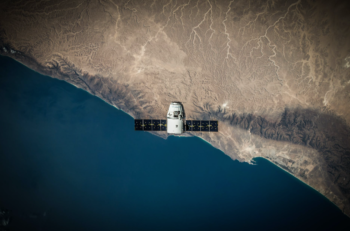T-Mobile plans to use SpaceX’s Starlink broadband satellites next year to bring connectivity to mobile phones beyond the reach of its cell towers in the U.S. Upgraded Starlink satellites would connect directly to standard cell phones under a technology partnership that aims to bring services to “mobile dead zones” across the country, according to T-Mobile CEO Mike Sievert.
Beta services that would be initially limited to messages and pictures could begin “as soon as late next year,” Sievert said, with voice and data capabilities coming sometime later.
Starlink V2 satellites are too big to fit on a Falcon 9 that SpaceX has been using to launch its current generation of Starlinks, SpaceX CEO Elon Musk said. They need a “super-heavy-lift Starship” vehicle it is developing to get to low Earth orbit, reports SpaceNews.
The companies need several regulatory approvals from the FCC and FAA to accomplish their plans. If the Starship program is “delayed longer than expected,” Musk said the company is considering initially downsizing second-generation satellites — “a sort of Starlink V2 mini” — so they would fit on a Falcon 9. “We have it working in the lab and we’re confident this will work in the field,” he said.
According to Musk, the service will be capable of providing “maybe two to four megabits” of capacity, enabling 1,000-2,000 simultaneous voice calls or hundreds of thousands of text messages. The capacity would be spread over a very large area, according to SpaceNews. Sievert mentioned the service would be working on “PCS frequencies.” The combined T-Mobile and Sprint 1900 MHz PCS spectrum holdings have around 65 MHz of bandwidth. Most smartphones can work in this band.
“It’s not a substitute for ground cell stations,” Musk said, because those “especially in urban and suburban areas will definitely be superior to what we’re talking about here. This is really meant to provide basic coverage to areas that are currently completely dead.”
The news comes as the FCC denied Starlink nearly $900 million in RDOF subsidies to expand its rural broadband services, calling the technology “nascent,” Inside Towers reported.





Reader Interactions